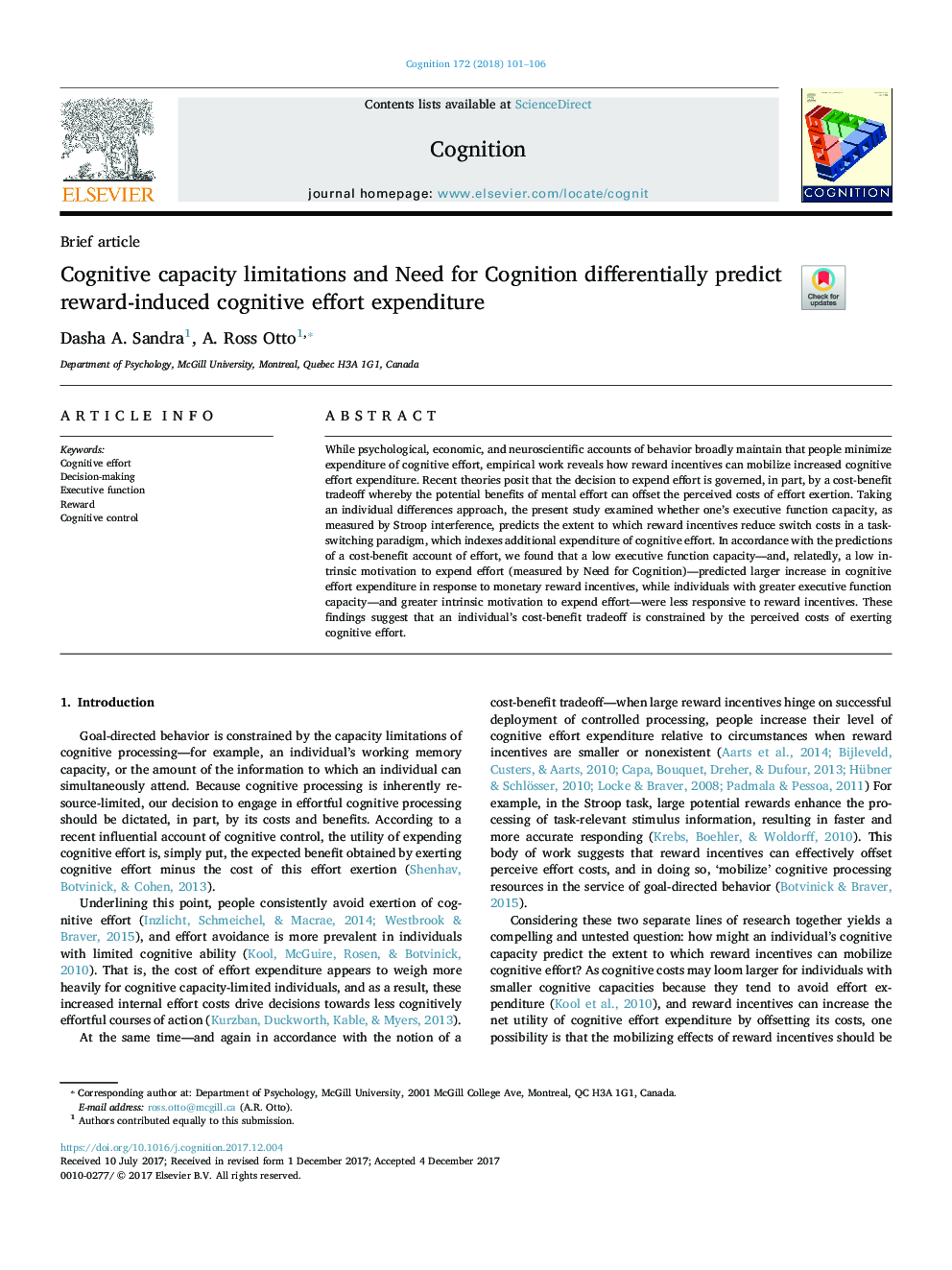| کد مقاله | کد نشریه | سال انتشار | مقاله انگلیسی | نسخه تمام متن |
|---|---|---|---|---|
| 7285563 | 1474095 | 2018 | 6 صفحه PDF | دانلود رایگان |
عنوان انگلیسی مقاله ISI
Cognitive capacity limitations and Need for Cognition differentially predict reward-induced cognitive effort expenditure
ترجمه فارسی عنوان
محدودیت ظرفیت شناختی و نیاز به شناخت به طور متفاوتی پیش بینی کننده هزینه های شناختی ناشی از پاداش هستند
دانلود مقاله + سفارش ترجمه
دانلود مقاله ISI انگلیسی
رایگان برای ایرانیان
کلمات کلیدی
تلاش شناختی، تصمیم سازی، عملکرد اجرایی، جایزه، کنترل شناختی،
موضوعات مرتبط
علوم زیستی و بیوفناوری
علم عصب شناسی
علوم اعصاب شناختی
چکیده انگلیسی
While psychological, economic, and neuroscientific accounts of behavior broadly maintain that people minimize expenditure of cognitive effort, empirical work reveals how reward incentives can mobilize increased cognitive effort expenditure. Recent theories posit that the decision to expend effort is governed, in part, by a cost-benefit tradeoff whereby the potential benefits of mental effort can offset the perceived costs of effort exertion. Taking an individual differences approach, the present study examined whether one's executive function capacity, as measured by Stroop interference, predicts the extent to which reward incentives reduce switch costs in a task-switching paradigm, which indexes additional expenditure of cognitive effort. In accordance with the predictions of a cost-benefit account of effort, we found that a low executive function capacity-and, relatedly, a low intrinsic motivation to expend effort (measured by Need for Cognition)-predicted larger increase in cognitive effort expenditure in response to monetary reward incentives, while individuals with greater executive function capacity-and greater intrinsic motivation to expend effort-were less responsive to reward incentives. These findings suggest that an individual's cost-benefit tradeoff is constrained by the perceived costs of exerting cognitive effort.
ناشر
Database: Elsevier - ScienceDirect (ساینس دایرکت)
Journal: Cognition - Volume 172, March 2018, Pages 101-106
Journal: Cognition - Volume 172, March 2018, Pages 101-106
نویسندگان
Dasha A. Sandra, A. Ross Otto,
